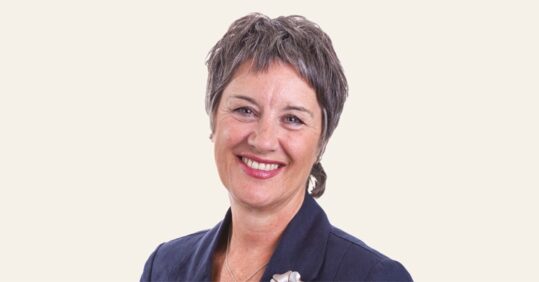GP bashing must stop and practices given credit for fast-tracking the future of healthcare

The media and public are impatient to re-open general practice but some of the technological advances achieved in lockdown are here to stay, writes Marilyn Eveleigh.
There is a palpable national urge to return to ‘normal’ now the pandemic vaccination programme has worked its magic. Emerging from lockdown, there are fresh perspectives and new expectations of health providers and users.
Related Article: Health visitors to play integral role in improving childhood vaccinations uptake
However, there are increasingly loud complaints that general practice services are not returning to normal rapidly enough: patients report not having seen a GP for 18 months, still needing to telephone at 8am daily for an appointment that can be allocated weeks in advance, being blocked by rigid receptionists or firmly closed doors and an over-reliance on virtual consultations. Latest figures indicate face-to-face appointments are hovering at 57%, well down on pre-pandemic levels.
Virtual consultations were a safe, pragmatic response initially, with practices incentivised to develop the service. But have they become the new ‘normal’? NHS England have now formally requested practices to be more open to patients and resume surgery appointments. Patients unable to use, or uncomfortable with, virtual consultations are increasingly at risk of prolonged delays, missed warning signs and overdue interventions, especially in relation to diabetes and cancer. Campaign and charity groups have warned the new health secretary, Sajid Javid, that the not-so-techy elderly are getting a second-class GP service.
Although many practices are fully functioning, others are accused of still playing the Covid card. As one newspaper asked, if hairdressers and pubs are back in business, so why not surgeries? The media grimly report a daunting backlog of overdue consultations. And while acknowledging there are not enough GPs they also unkindly highlight that too many are now choosing to work part-time, and that practices are electing to use virtual consultations over face-to-face.
Related Article: Supporting student nurses on placement in general practice
The public’s customary high regard for GPs is being eroded by this poor press. The situation is demoralising for our GP colleagues and for already stretched surgery teams who have dramatically modified their practice. Yes, there is a shortage of GPs and practice nurses: but those in post report low job satisfaction and are exhausted by ever-increasing demands, impatience and abuse by patients who have unrealistic expectations of general practice. That is concerning.
Despite the challenges, surgeries undertook millions of face-to-face patient contacts to make the vaccination programme an outstanding success. Unfortunately, achievement of childhood vaccinations and cytology targets is considerably lower. But is this a consequence of surgery coronavirus safeguards or patient anxiety and choice?
Related Article: We need one million people in England to give blood
In response to the crisis, health services had to adapt and change, as have professionals and patients. We adopted technology as a way to maintain patient services with e-consultations, extended telephone triage, appointments and advice apps, with Track and Trace becoming mainstream for many. Lockdown has escalated the use of technology in society. We embraced IT innovations that joined us together when we had to stay apart.
Virtual consultations monitoring millions of patients with long-term conditions was a major IT and primary care achievement. Many patients liked it; many didn’t. It has not warranted the GP bashing we have witnessed. Practices can be credited with quickly adapting to the pandemic and in the process offering greater options to the way healthcare can be delivered.

See how our symptom tool can help you make better sense of patient presentations
Click here to search a symptom




